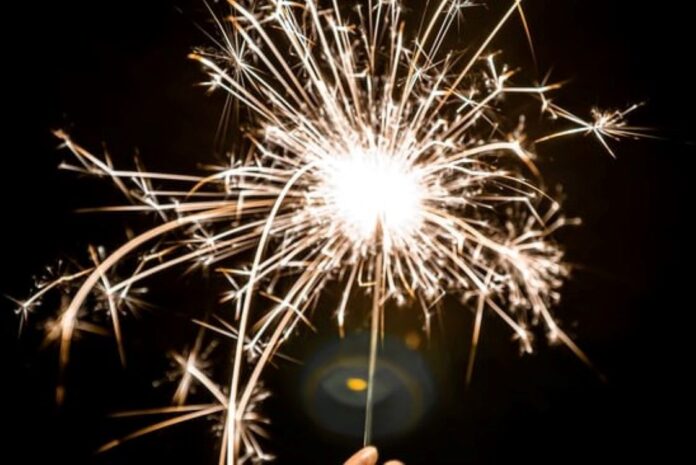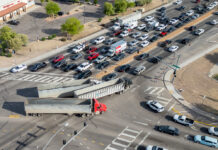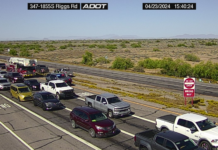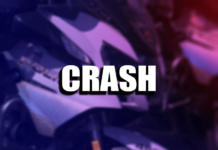
Maricopans love their fireworks, and many of us will ring in the new year by setting some off in their neighborhood. And while fireworks can spark a celebration, they also can be dangerous.
With all the recent rains, the fire danger should be minimized, but there still are safety considerations to keep in mind.
“They can cause house fires, garbage fires, almost anything,” said Chris Bolinger, deputy chief of operations for the Maricopa Fire/Medical Department. “You’re setting off high-temperature sparks and sending them in uncontrolled directions. Even sparklers can set clothing on fire – a lot of children get burned that way.”
The Arizona Revised Statutes provides an exception to the local law banning fireworks in neighborhoods; “consumer fireworks” may be used from May 20 through July 6 and from Dec. 10 through Jan. 3 of each year without penalty. State law defines “consumer fireworks” as “small firework devices that contain restricted amounts of pyrotechnic composition designed primarily to produce visible or audible effects by combustion.”
Fireworks Safety
The U.S. Consumer Product Safety Commission (CPSC) has developed a list of tips to help people safely enjoy their fireworks:
- Never allow young children to play with or ignite fireworks.
- Avoid buying fireworks packaged in brown paper. It’s often a sign the fireworks were made for professional displays and could pose a danger to consumers.
- Always have an adult supervise firework activities. Parents don’t realize that young children suffer injuries from sparklers, which can burn at 2,000 degrees – hot enough to melt some metals.
- Never place any part of your body directly over a fireworks device when lighting the fuse. Back up to a safe distance immediately after lighting fireworks.
- Never try to re-light or pick up fireworks that have not ignited fully.
- Never point or throw fireworks at another person.
- Keep a bucket of water or a garden hose handy in case of fire or other mishap.
- Light fireworks one at a time, then move back quickly.
- Never carry fireworks in a pocket or shoot them off in metal or glass containers.
- After fireworks complete their burning, douse the spent device with plenty of water from a bucket or hose before discarding it to prevent a trash fire.
- Make sure fireworks are legal in your area before buying or using them.
According to the CPSC, nearly half of all injuries come from just three of the most common consumer fireworks – sparklers, firecrackers and bottle rockets. Bolinger said even when taking precautions, there still are dangers.
“Any type of firework can be dangerous – the dangers are just different depending on the firework,” he said. “Things designed to go up in the air can tip over and shoot down the street, things can go off early – there are all sorts of dangers.”





![Maricopa’s ‘TikTok Rizz Party,’ explained One of several flyers for a "TikTok rizz party" is taped to a door in the Maricopa Business Center along Honeycutt Road on April 23, 2024. [Monica D. Spencer]](https://www.inmaricopa.com/wp-content/uploads/2024/04/spencer-042324-tiktok-rizz-party-flyer-web-218x150.jpg)






![Alleged car thief released without charges Phoenix police stop a stolen vehicle on April 20, 2024. [Facebook]](https://www.inmaricopa.com/wp-content/uploads/2024/04/IMG_5040-218x150.jpg)




